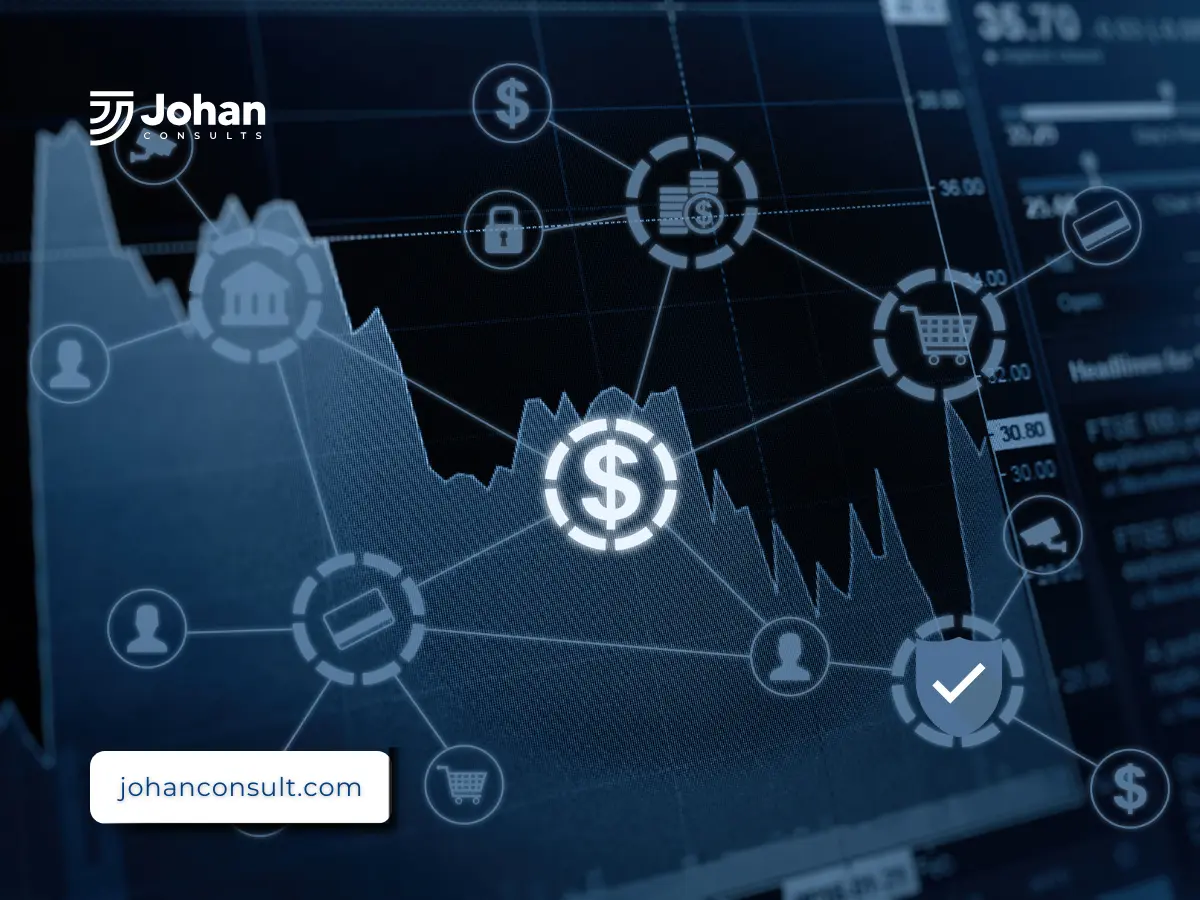The coalition between the financial industry and technology started way before what we have now. Ever since the first ATM in the 1960s, the two industries became joined at the ribs.
Furthermore, the evolution of mobile internet paved the way for better improvement in the financial sector. A quick look at the user-friendly and easy-to-use nature of fintechs reveals the stark difference from traditional banks. While fintechs give an aura of freedom, physical banks are often stuffy and brooding.
Sure, we love these new developments—the easy transactions and zero-stress payment methods—but we need to consider fintech data protection.
What’s the Importance of Data Protection in Fintech?
Data is the one thing every business needs in varying amounts, and the sporadic growth of the internet means that organisations have lots of it at their disposal. So, do fintechs use data? Yes, they do. In fact, the category of data fintech companies use and store is very sensitive. We are talking about passwords, credit card numbers, account details, home addresses, etc., and these kinds of data attract the wrong attention.
Here comes fintech data protection, which is how fintech companies safeguard data from compromise, loss, or unauthorised access. As a fintech company, there’s a ton of reasons you cannot do without data protection.
First is regulatory compliance; as a result of the neverending occurrence of cyberattacks, countries and industries set down laws to oversee the act of safeguarding data. The GDPR for example, protects data of EU citizens regardless of the organization’s location. Similarly, organisations operating in Nigeria answer to the NDPA (Nigerian Data Protection Organisations).
Is regulatory compliance necessary for fintech companies? Well, If they wish to boycott the fines and penalties of non-compliance, then they need to protect data. For confirmation, a 2023 report reveals that over 60% of fintechs pay at least $250 000 in compliance fines and one-third pay higher than $500 000.
While fintechs are concerned with non-compliance fines, they’re more bothered about customer confidence. The nature of the financial industry doesn’t encourage data breaches because of the severe effects (identity theft, financial fraud, etc.). Once it happens, clients migrate immediately and may never return.
Key principles of fintech data protection
Data protection is not merely an obligation; it’s a cornerstone to fostering trust, transparency, and growth in the fintech industry. A look at the vast amount of data circulating in the fintech world: data protection must be done (the right way!). So, what are the key principles to fintech data compliance?
Lawfulness, fairness and transparency
Data collection, processing and storage must follow the lawful pathway and be for legal reasons. Data subjects (data owners) must be informed about the data being collected, the purposes, and their rights.
This means that fintech companies have no right to collect, use, or even keep user data without informing the client. We’ll explore how this principle protects data later.
Purpose limitation
Data cannot be collected nor processed for reasons beyond the stated. If the need arises, fintechs must inform users about new developments.
Data minimization
Data collected must be relevant to the purpose for which it’s being collected. This principle works hand in hand with purpose limitation. It means that data should be adequate, relevant, and limited to what is necessary for the purpose of processing.
Integrity and confidentiality
appropriate technical and organizational measures must be implemented to protect personal data from unauthorized or unlawful processing and accidental loss
Storage limitation and accuracy
Users’ personal data must be accurate and kept up-to-date. As a result, fintechs must implement a system to detect and rectify all inaccuracies.
Accountability
Fintech companies are held accountable for compliance with the above data protection principles. So, they must be able to defend their compliance. To do this, regular risk assessments and appropriate governance structures must be carried out in addition to employee trainings. Beyond, fintechs should create a data protection framework that addresses issues like third-party access, cross-border transfers, and data breaches.

Challenges To Fintech Data Protection
The journey to data protection for fintech companies would’ve been smooth, but for the challenges it faces. The challenges to fintech data security lower the efficiency level of the system but are also combatable. Let’s look at a few of them.
Cybersecurity Threats
The financial sector took advantage of the widespread mobile internet to introduce easy transactions and place the customer first. While it produced desired results, the sheer amount and nature of data fintechs use makes them vulnerable to cyberattacks like phishing, hacking, ransomware, etc. A report by Statista confirms the financial industry as one of the most cyberattacked industries, as it takes the no. 2 position.
Now, these threats operate in such a vicious and never-ending manner that it takes more effort for fintechs to gaurd against them. Take AI as an example. Cyberminals use AI to scrutinise Fintech’s defence system for vulnerabilities, and it does the job faster than the victim company can rectify the situation.
Insider Threats
Based on facts, fintech employees are regarded as one of the most security-conscious across various industries. Regardless, their actions, particularly unauthorised access, contribute to the threats to data.
A prime example of this is the “NDPC fines Fidelity Bank” fiasco, where the bank (maybe a staff member) used the client’s data without her consent or knowledge. And that’s not even critical.
There are situations where cybercriminals exploit the organisations due to the careless nature of the staff. In a recent report, about 49% of fintech staff admit to bending the rules for work ease.
Third-party Risks
Most times, fintech companies collaborate with other organisations that need access to user data. This practice poses more challenge to fintech data protection as the third party may have weak data protection practices. All it takes is one hit for cybercriminals, and every available piece of data is compromised.
Data Protection Measures For Fintech Companies
Prevention, they say, is better than cure. The saying rings true for fintechs, and here are some protection measures they can apply.

Understanding Regulatory Compliance
Data protection regulations like the General Data Protection Regulation (GDPR) were established with a comprehensive framework for organisations to follow. So, fintechs who aim to protect data are better off complying with the applicable laws.
First, fintech companies need to learn about the regulations applicable to the industry.
Second, they must implement appropriate policies and procedures for compliance.
Achieve Regulatory Compliance with Johan Consults
At Johan Consults, you boost your compliance with data protection laws like the GDPR, NDPA, etc. with our team of data protection experts. First, we schedule a free 30-minute call with you to understand your painpoints, and then we come up with solutions tailored to your business needs.
Data Encryption and Secure Storage
Encryption is the act of turning data into unreadable format that can only be deciphered with a key. This practice prevents malicious actors from reading data even if they access it. But losing the key remains a risk, as the data is lost without it.
Fintechs should apply encryption as a way to protect data in transit or at rest.
As for storage, cloud storage is the best. Although it comes with its own downsides, implementing proper access controls will curb untoward activities. In addition, physical security measures such as ID or biometrics (eye scanner) should be used to prevent unauthorised access.
Access Control and User Authentication
Fintechs must block unauthorized access to data by legal means and that includes role-based access. With role-based access, individuals are granted access to only data crucial to their roles (nothing more, nothing less).
User authentication means confirming the user is who they say they are. This can be done with multi-factor authentication, like a password used after a face scan.
To further strengthen data protection, fintechs must regularly update access protocols.
Incidence Response Plan
Fintech companies cannot escape cyberattacks, and once in a while, they fall victim to data breaches. Regardless, the effects can be reduced with a proper incidence-response plan. So, while prevention is better than cure, fintechs must work on a recovery plan.
Continuous Monitoring and Threat Detection
To stay steps ahead of malicious actors, fintech companies must constantly monitor their systems for vulnerabilities. The key is to fix the issue before the attackers and new age technologies like AI help out.
In addition to the above, here are other practices for fintech data protection:
- Educating users on data security (e.g., phishing awareness, password strength).
- Secure mobile and web application development.
- Implementing privacy-by-design principles in product development.
Conclusion
The key takeaways from this article are:
- Fintech offers convenience and freedom compared to traditional banking, but data protection is crucial due to the sensitive nature of the data involved.
- Regulatory compliance is necessary to avoid heavy fines and penalties.
- Data breaches severely impact customer trust, often leading to the loss of clients.
- Key data protection principles include lawfulness, purpose limitation, data minimisation, data integrity, confidentiality, accuracy, and accountability.
- Major challenges include cybersecurity threats, insider risks, and third-party vulnerabilities.
- Recommended data protection measures involve regulatory compliance, encryption, secure storage, access control, incident response plans, and continuous monitoring.
- Additional measures include user education, secure application development, and integrating privacy-by-design in products.
Ready to safeguard your fintech data? Let Johan Consults create a compliance strategy tailored for your business.Schedule your free consultation today! Contact us at Johans Consults now










